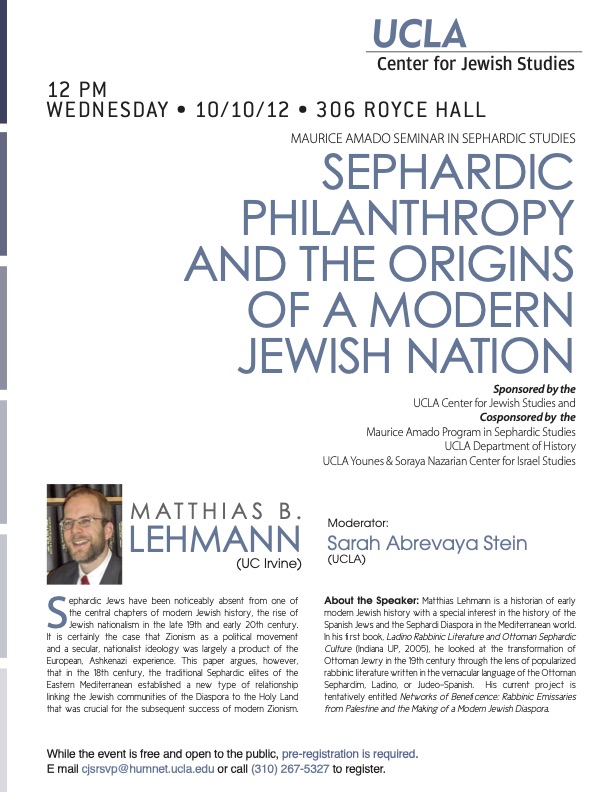
Sephardic Jews have been noticeably absent from one of the central chapters of modern Jewish history, the rise of Jewish nationalism in the late 19th and early 20th century. It is certainly the case that Zionism as a political movement and a secular, nationalist ideology was largely a product of the European, Ashkenazi experience. This paper argues, however, that in the 18th century, the traditional Sephardic elites of the Eastern Mediterranean established a new type of relationship linking the Jewish communities of the Diaspora to the Holy Land that was crucial for the subsequent success of modern Zionism.
About the Speaker: Matthias Lehmann is a historian of early modern Jewish history with a special interest in the history of the Spanish Jews and the Sephardi Diaspora in the Mediterranean world. In his first book, Ladino Rabbinic Literature and Ottoman Sephardic Culture (Indiana UP, 2005), he looked at the transformation of Ottoman Jewry in the 19th century through the lens of popularized rabbinic literature written in the vernacular language of the Ottoman Sephardim, Ladino, or Judeo-Spanish. His current project is tentatively entitled Networks of Beneficence: Rabbinic Emissaries from Palestine and the Making of a Modern Jewish Diaspora.